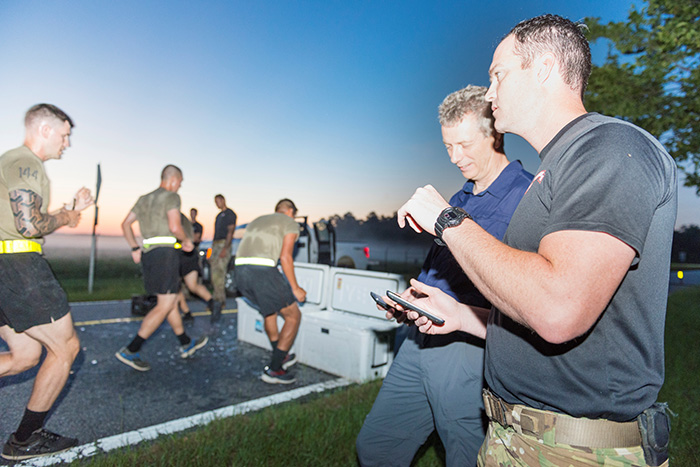Emerging Research, Viewpoints Seek to Define Military Readiness for a New Generation

U.S. Navy Commander Christopher Steele walked to the front of the room, tapped the microphone with his finger, and stared into the audience of more than one hundred people before flashing a wry, knowing smile.
"You want to know what we're focused on?" he said to the midday crowd at the 2019 Military Health System Research Symposium in Kissimmee, Florida. "We're focused on everything – everything related to readiness across the DOD."
It was a blunt –if ultimately true– admission from Steele, who currently serves as the Acting Director of the U.S. Army Medical Research and Development Command's Military Operational Medicine Research Program (MOMRP). In a military where the concept of 'readiness' now encompasses such a wide and varied range of research and study areas, the attendees at this year's MHSRS seemed to likewise enjoy considering the kinds of emerging methodologies and viewpoints that may have been overlooked in previous years.
"United States Marines are a special breed, as you all know," said the Naval Health Research Center's Diane Williams with a chuckle during the introduction to her own study on the impact of Attention-Deficit/Hyperactivity Disorder (ADHD) on the DOD's smallest military service. In the end, her study –which was funded in part by MOMRP– argued that recruiting and accessing Marines who exhibit signs of ADHD should indeed continue, as the majority of Marines who are diagnosed with the disorder ultimately serve, on average, for 46 months and without incident, according to her data. Given that ADHD diagnoses in the U.S. have increased by more than 40% over the past eight years across all age groups according to the non-profit A.D.D Resource Center, Williams' research stands as a shining example of a formerly-niche topic that is expanding the definition of what it truly means to be 'ready' from a military standpoint.
Likewise, Steele's breakout session –aptly titled "Hitting the Target: Ensuring Optimal Human Performance, Psychological Health and Readiness Throughout Military Service"– put an emphasis on emerging cultural issues as well.
During her well-attended presentation on LGBT Service Members and workplace cohesion, Captain Kathleen McNamara presented data that showed the more than 65,000 active LGBT Service Members in the U.S. are at a higher risk of depression than people of any other sexual orientation.
"The mental health of LGBT Service Members is inextricably linked to their views on unit cohesion and social support," said McNamara as part of her closing statements.
Indeed, as the boundaries of military readiness reach beyond the definitions provided in previous years, it becomes incumbent to seek out and ultimately incorporate these concepts into the wider research fold. Steele's session also touched on such varied topics as mental fitness training, emotion regulation, and suicide prevention.
Said Steele regarding the latter, "Pushing the needle with regards to suicide prevention is extremely important to us – always has been."
Perhaps it is that very topic –suicide prevention amongst the service community– that stands as both a bellwether readiness issue and, also, a gateway to a menagerie of other, previously untapped veins of concern. For Steele's sake, the more attention –and the more awareness, the more research, and the more funding– the better. For him, the concept of military readiness has always been an "all of the above" kind of endeavor.
"Everything is important to us," said Steele to the crowd before wrapping the session. "Every little piece."














